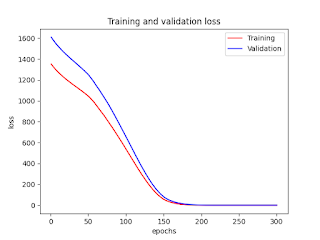Does a winner really take all? Is the weak destined to die anyway? The strong should survive, right?
Is this true for animals?
What about human beings? There're still lots of wars / disputes in some parts of the world, but if we look at developed countries, the weak is protected by wealth redistribution through taxation. Considering natural laws, only great genes should survive - but actually not for human beings. Let's forget about human rights.
Answer:
The natural world is not necessarily a place where "the strong survives while the weak doesn't." The weak does not necessarily be killed by the strong while the strong cannot always survive.
Tigers are stronger than rabbits. Tigers almost go extinct while rabbits are common all over the world.
Natural laws:
(A) An individual creature is destined to die (or be killed) anyway.
(B) Within a species, it is the survival-of-the-fittest world.
(A) A dog might be alive for only two years while another dog can live for ten years. But both dogs die anyway. The length of life does not matter.
(B) A creature which can adapt to the environment (and also environmental changes) should be able to survive. "Survive" doesn't only mean "a creature lives longer," rather, it means the best possible genes might be passed on to the next generation.
A feature of the nature is that "there're many, almost infinite, ways of adapting to the environment." Strong, big, fast, high-rates-of-birth, and active animals do not necessarily survive; for instance, sloth and deep-sea organism take survival strategy of reduced metabolism. There're wide variety of animals. Adapting to the environment (and also environmental changes) does really matter even though they are "weak" in a sense.
The survival-of-the-fittest does not mean "a creature survives;" Rather, that means the best possible genes might be passed on to the next generation.
Living is to produce offspring. Also, since wide variety of ways of adaptation exists, how to adapt to environment(tal changes) is dependent on survival strategies of a species.
A survival strategy of human beings is sociality. By building advanced and functional societies, an individual is protected by its nature of complementary interaction. An individual might not be good enough to survive in the long run (''the weak"), but by letting him/her survive, the probability of survival of species (human beings as a whole, but not individuals) could be maximized.
How many individuals do they live? How many "weak" individuals does the society can have? It is dependent on the power of the society. Human being can have more and more people who might not be held in earlier societies.
As a survival strategy of one species, human beings' strategy is successful without doubt.
The best genes in any circumstances do not exist; one gene might be the best for a certain circumstance while others could be the best in a different circumstance.
We cannot accurately estimate what kind of genes is the best for human beings. We cannot forecast what kind of environment will exist in the future. So, having as wide variety of genes as possible is rational as a survival strategy of a species. Different genes could work as an insurance under a certain environment.
No single individual can survive in the jungle of the Amazon; in nature, all human beings are the "weak" without our society of human beings. The "weak" human beings get together and let more and more "weak" individuals live. It's the survival strategy of human beings.
Again, we all are the "weak" and letting the "weak" be alive is the survival strategy of human beings.

